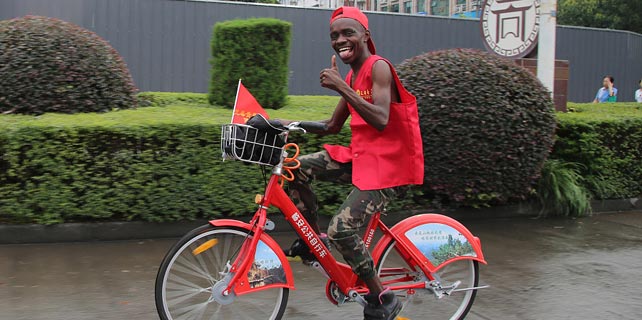Global collaboration will be increased to fight drug crimes by foreigners
China would like to strengthen intelligence sharing and joint law enforcement with other nations to combat drug offenses committed by foreigners, according to the Ministry of Public Security.
This includes China's plans to provide more technical support and help with personnel training for countries in the Golden Triangle, an area straddling Laos, Myanmar and Thailand, and the Golden Crescent, including Afghanistan, Iran and Pakistan.
The two areas are the world's two biggest production areas for heroin and methamphetamine, said a senior official in the ministry's Narcotics Control Bureau.
Information sharing and tip exchanges with other key countries, such as the United States and some African and European countries, will also be enhanced to help smash cross-border drug trafficking, said the official, who declined to be named.
"The number of drug cases involving foreigners handled by Chinese police was stable last year compared with 2015, but the situation remains grim, particularly in some key regions such as Shanghai, Guangdong, Yunnan and the Guangxi Zhuang autonomous region."
The official spoke ahead of the International Day Against Drug Abuse and Illicit Trafficking, which fell on Monday.
The ministry did not release details on the number of foreign suspects detained last year, but said most of them came from West Africa, Southeast Asia and North America. Many entered China illegally and did not have legal status, lawful residence or employment in China.
Prosecutors in Shanghai said that the number of drug-related crimes in which foreigners are involved has been on the rise in the city. Forty-five expats have been involved in such cases since the beginning of 2015. There were 14 cases in 2015, 19 last year and 12 so far this year, the Shanghai People's Procuratorate said on Sunday.
"Most of these expats are between 20 and 30 years old, and many were overseas students who studied in Shanghai," said Gu Xiaomin, who directs the procuratorate's prosecution of major and influential cases.
Most of these suspects were involved in cases of trafficking a small amount of drugs and transporting drugs from overseas, Gu said.
"As most of them were drug addicts themselves, they relied on selling small amounts of drugs, usually less than 1 gram at a time, to afford their drug habits. They didn't sell drugs to earn high profits," he said.
These suspects came from 23 foreign countries, including Australia, Canada, South Korea, Guinea and Ghana, according to the procuratorate.
Nationally, the ministry said there has also been a tendency for drug traffickers to make use of "special vulnerable groups", such as minors, pregnant and breast-feeding women, drug addicts or people with infectious diseases to help with the smuggling to take advantage of their desperation or lessen the chance of punishment if they are caught.
Under the Criminal Law, if suspects are elderly, at or above age 80, minors, or pregnant or breast-feeding women, they will face more lenient punishment or be released pending trial.
Contact the writers at zhangyan1@chinadaily.com.cn






















